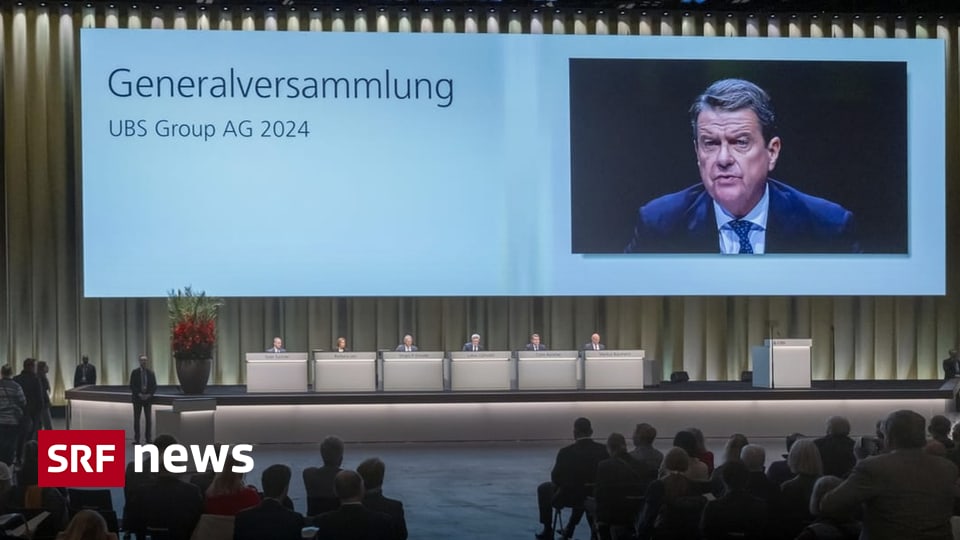Contents
The management of the company prevailed with its proposals. It remains controversial whether the bank needs more capital.
Not only 14 million francs in compensation for CEO Sergio Ermotti, but also the bank’s capital management plans: all proposals from UBS management were waved through by shareholders at the general meeting.
Nevertheless, the question still arises: Shouldn’t the megabank build up significantly more capital in order to be crisis-proof?
“No state guarantee”?
CEO Sergio Ermotti says UBS is not “too big to fail”. The bank does not expect to be rescued by the state in the next crisis. It is a “factually incorrect claim that UBS has an implicit government guarantee”.
Ermotti admits that capital requirements will continue to increase. But UBS already has enough security buffers to absorb large losses. According to the CEO, the risks are borne by the shareholders, not by the state.
However, there are doubts among the public and politicians that the risks would be borne by UBS shareholders – the emergency sale of CS to UBS was carried out with state support.
Analysts are calling for billions in cushion
The Federal Council made it clear in a report two weeks ago: UBS should build up larger capital buffers. Based on the report, analysts estimate that the major bank will need to raise $15 to $25 billion in additional capital in the next few years.
But that’s not enough, says Finance Minister Karin Keller-Sutter. In the worst case scenario, she wants UBS to be “wound up” if it is no longer viable. Winding down a bank means reorganizing it or letting it die – in a controlled manner if possible – so that the rest of the economy does not suffer greatly.
Toolbox expanded
Experts have been discussing this processability since the last major financial crisis in 2008. Since then, experts, authorities and banks in many countries have developed a common, international set of rules. It allows banks to provide a significant part of their security buffers in special bonds, including so-called AT1 instruments.
The crux of the matter is that only in the event of an existential crisis do these special financial instruments become normal share capital with which the bank can continue to operate and cushion losses.
UBS has had such instruments for a long time. At the AGM, the big bank – to put it simply – expanded its toolbox in the event of a crisis. The corresponding motion passed with 91 percent yes votes.
More equity required
However, not all observers are convinced of this approach, although it is in line with banking regulation standards. “This bank is so big and so important for Switzerland that we are convinced that more equity, more shares, are important,” says Vincent Kaufmann from the Ethos shareholders’ association on the sidelines of the general meeting.
While CS is now gradually being integrated into UBS, the only remaining major Swiss bank will have to face the debate about its capital requirements even more intensively. Even if UBS claims that it is already well prepared for the next crisis – and that it is not “too big to fail”.
